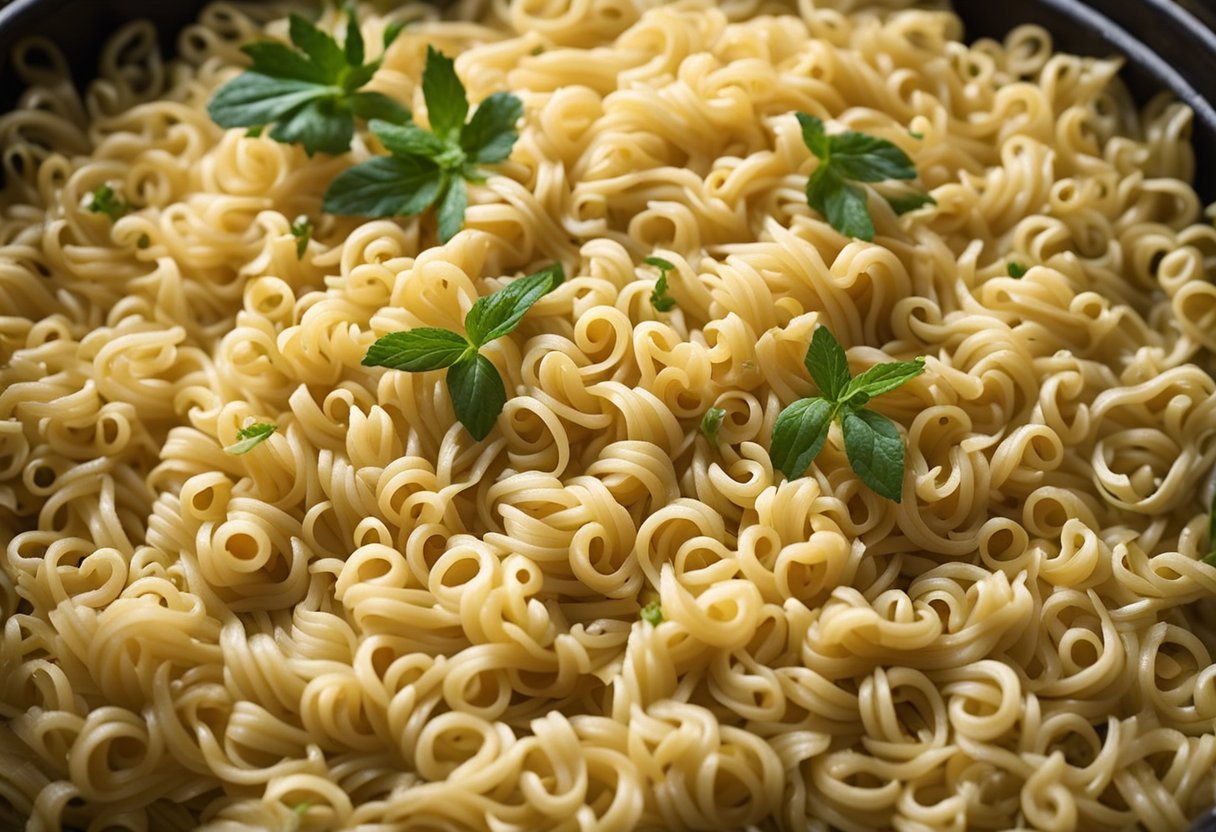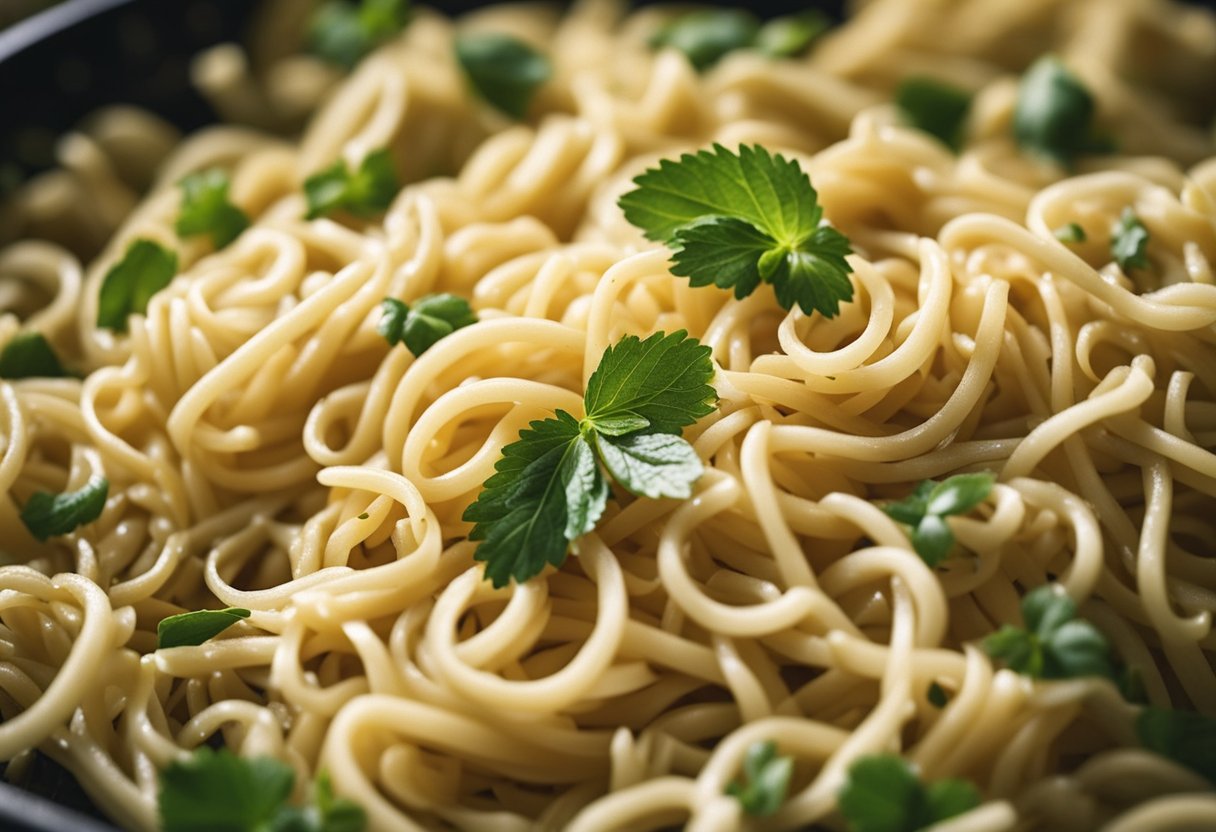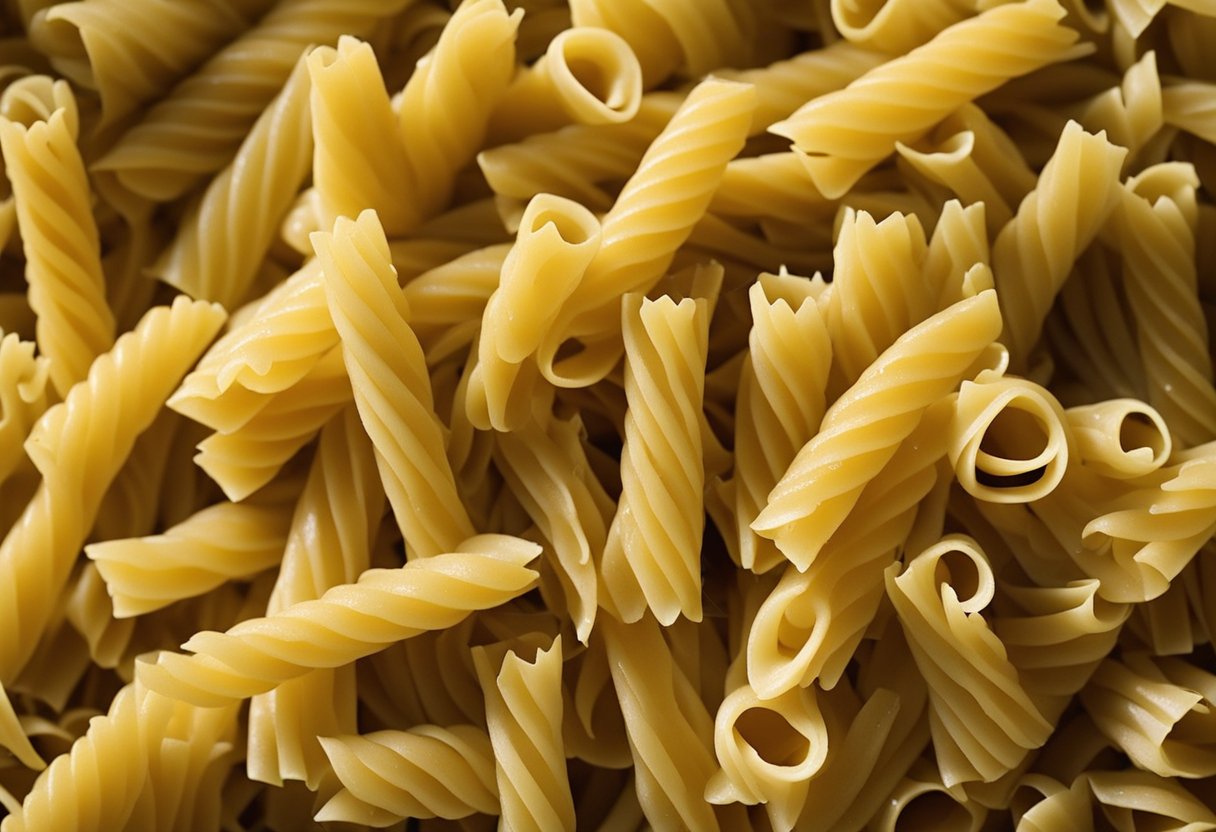As an Amazon Associate I earn from qualifying purchases.
At A Glance
Yes, you can compost noodles as they are a biodegradable organic matter. Whether cooked or uncooked, noodles can be added to your compost pile where they will break down over time. It’s preferable to chop them into smaller pieces to accelerate the decomposition process. However, be cautious if the noodles are mixed with oils, sauces, or meats, as these substances can attract pests and create unpleasant odors in your compost pile. It’s always better to compost plain noodles or ensure they are well-mixed with other compost materials to minimize any issues.
Composting is a sustainable way to manage organic waste by turning it into nutrient-rich soil. However, not all types of food waste can be composted. One item that often raises questions when it comes to composting is noodles. In this article, I will discuss whether or not you can compost noodles and provide some tips on how to do it properly.

The good news is that you can compost noodles, both cooked and uncooked. However, there are some things to keep in mind. Too much pasta in your compost bin can attract pests and create an imbalance in the moisture level. Therefore, it is important to add pasta in moderation and layer it properly in your compost pile. Additionally, you should avoid adding freshly cooked noodles directly into your compost pile due to their hot temperature and potential attraction for pests.
If you are new to composting, it is important to understand the basics before adding any type of food waste to your compost pile. Composting requires a balance of moisture, carbon, and nitrogen. Adding too much of one item can create an imbalance and slow down the composting process. By following some simple guidelines, you can successfully compost noodles and other food waste, while reducing your carbon footprint and creating nutrient-rich soil for your garden.
Understanding Composting
Composting is the process of breaking down organic material into a nutrient-rich soil amendment. This process is achieved through the use of microorganisms, such as bacteria and fungi, which break down the organic material into its component parts. The decomposition process is driven by the microorganisms, which consume the organic material and convert it into simpler compounds.
Composting requires a balance of carbon and nitrogen, also known as “brown” and “green” compostable materials, respectively. Carbon-rich materials include things like dried leaves, sawdust, and shredded paper, while nitrogen-rich materials include things like grass clippings, food scraps, and manure. A good compost pile should have a balance of both types of materials to ensure that the decomposition process proceeds smoothly.
The decomposition process requires oxygen, so it’s important to ensure that your compost pile is well-aerated. This can be achieved by turning the pile regularly or using a composting bin that allows for good airflow.
Organic matter is the key component of any compost pile. This can include a wide variety of materials, such as fruit and vegetable scraps, yard waste, and even some types of paper. However, not all organic materials are suitable for composting. For example, meat and dairy products should not be added to a compost pile, as they can attract pests and slow down the decomposition process.
In summary, composting is a natural process that relies on microorganisms to break down organic material into a nutrient-rich soil amendment. To ensure that your compost pile is successful, it’s important to balance carbon and nitrogen, provide adequate oxygen, and use appropriate compostable materials.
Composting Noodles

I have researched whether or not noodles can be composted, and the answer is yes! However, there are a few things to keep in mind when composting noodles to ensure that they break down properly and don’t attract pests.
Firstly, it’s best to use whole wheat noodles for composting instead of refined white flour noodles. Whole wheat noodles have a higher fiber and nutrient content, which can benefit your compost pile.
Before adding noodles to your compost pile, it’s important to break them down into smaller pieces. This will speed up the composting process and prevent clumping. You can do this by crushing the noodles or cutting them into smaller pieces.
It’s also important to note that adding cooked pasta directly to your compost pile is not recommended. Cooked pasta is hot and can attract pests, so it’s best to avoid adding it. Instead, use uncooked, dry noodles for composting.
In conclusion, composting noodles is definitely possible as long as you follow these guidelines. Use whole wheat noodles, break them down into smaller pieces, and avoid adding cooked pasta to your compost pile. By doing so, you can successfully compost noodles and contribute to a healthier garden.
Composting Different Types of Pasta

As a compost enthusiast, I have often wondered whether pasta can be composted. After doing some research, I have learned that pasta can indeed be composted. However, not all types of pasta are created equal.
When composting pasta, it is important to consider the ingredients in the pasta. Pasta varieties that contain oil or meat should be avoided as they can attract pests and slow down the composting process. Additionally, pasta sauces that contain dairy or meat should also be avoided.
On the other hand, pasta varieties that are made from starches, grains, or flour are great for composting. These varieties break down quickly and easily, adding valuable nutrients to your compost pile. Some examples of pasta varieties that are suitable for composting include spaghetti, macaroni, and penne.
It is also important to note that cooked pasta can be composted, but it is best to avoid adding large amounts at once. Cooked pasta can become slimy and gooey, which can slow down the composting process.
In summary, when composting pasta, it is best to stick with varieties that are made from starches, grains, or flour and avoid those that contain oil or meat. By doing so, you can add valuable nutrients to your compost pile while avoiding unwanted pests and slowing down the composting process.
Potential Issues with Composting Noodles
Composting noodles is possible, but there are a few potential issues that you should be aware of. Firstly, noodles can attract pests such as rats and raccoons. This is especially true if you add freshly cooked noodles into your compost pile as they will release a strong odor that can attract these pests. To avoid pest problems, it is recommended that you wait for the noodles to cool down and dry out before adding them to your compost pile.
Another potential issue with composting noodles is the risk of bacterial overgrowth. Noodles are high in starch and can quickly become a breeding ground for bacteria if not properly composted. To avoid unpleasant odors and bacterial overgrowth, it is recommended that you add nitrogen-rich materials such as grass clippings or coffee grounds to your compost pile along with the noodles. This will help to balance the carbon to nitrogen ratio and promote healthy composting.
In summary, while composting noodles is possible, it is important to be aware of the potential issues such as attracting pests and bacterial overgrowth. By following the tips mentioned above, you can successfully compost noodles and turn them into nutrient-rich soil for your garden.
Composting Noodles: Timeline
When it comes to composting noodles, the timeline for decomposition can vary depending on several factors, such as the type of noodles, the amount of moisture in the compost pile, and the overall conditions of the composting environment.
In general, it can take anywhere from several weeks to several months for noodles to fully decompose in a compost pile. This timeline can be accelerated by breaking up the noodles into smaller pieces before adding them to the compost pile, which can increase the surface area for microbial activity and speed up the breakdown process.
However, it’s important to note that adding too many noodles to the compost pile at once can lead to issues with pest attraction and moisture balance. To avoid these problems, it’s best to add small amounts of noodles to the compost pile over time, rather than all at once.
Overall, composting noodles can be a great way to add carbon-rich materials to your compost pile and help create nutrient-rich soil for your plants. By following best practices for composting, such as monitoring moisture levels and avoiding overloading the pile with starchy foods, you can ensure that your composting process is efficient and effective.
Benefits of Composting Noodles
Composting noodles can provide several benefits for your garden and the environment. When added to a compost pile, noodles break down into nutrient-rich soil, which can be used as fertilizer for your plants. This means that composting noodles can help reduce the need for chemical fertilizers, which can be harmful to the environment.
In addition to providing nutrient-rich soil, composting noodles can also help reduce greenhouse gas emissions. When organic waste, such as noodles, is sent to a landfill, it decomposes and produces methane, a potent greenhouse gas. However, when organic waste is composted, it decomposes in an oxygen-rich environment, which reduces the production of methane.
Furthermore, composting noodles is an easy and convenient way to reduce food waste. Instead of throwing away leftover noodles, you can add them to your compost pile and turn them into nutrient-rich soil for your garden. This not only reduces the amount of waste that ends up in landfills but also helps conserve resources by recycling organic matter.
Overall, composting noodles can provide several benefits for your garden and the environment. By reducing the need for chemical fertilizers, reducing greenhouse gas emissions, and reducing food waste, composting noodles is a simple and effective way to promote sustainability and help protect the planet.
Conclusion
In conclusion, composting noodles is a great way to reduce waste and create nutrient-rich soil for your plants. However, it is important to keep a few things in mind to achieve optimal results.
Firstly, moderation is key. While dried uncooked noodles are safe and suitable for composting, adding too much pasta to your compost bin can lead to pest infestation and bacterial overgrowth. Therefore, it is important to add pasta in moderation.
Secondly, it is important to balance out the moisture in your compost pile. Most of the items you frequently add to your compost piles will be wet and slimy. Adding pasta to your compost pile can help balance out the moisture and prevent the compost from becoming too wet.
Lastly, pasta falls under the category of starchy foods, which can take longer to decompose compared to other organic materials. Therefore, it is important to chop the pasta into smaller pieces to speed up the decomposition process.
By following these simple guidelines, you can successfully compost pasta and create nutrient-rich soil for your plants.
